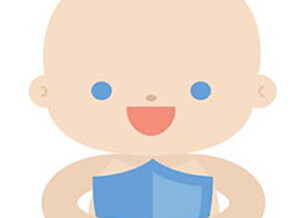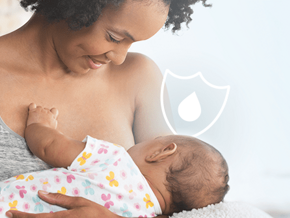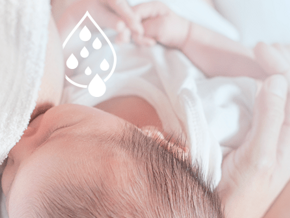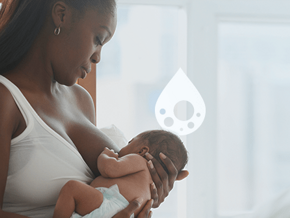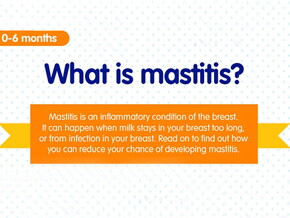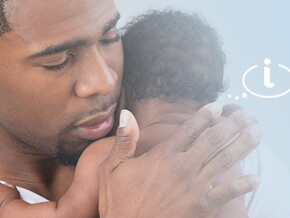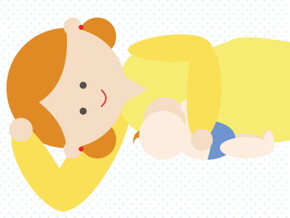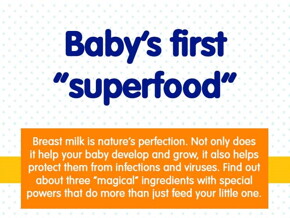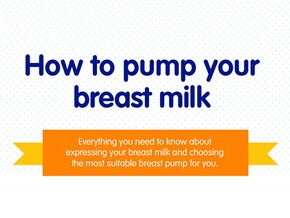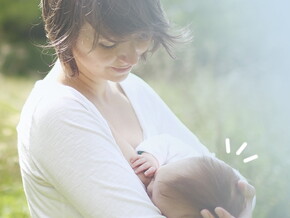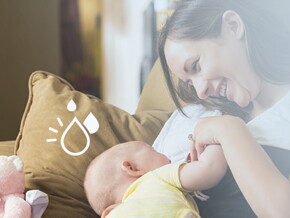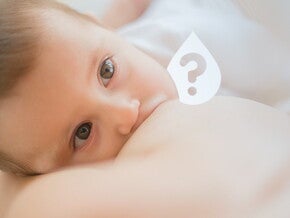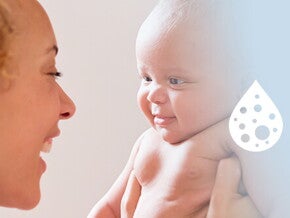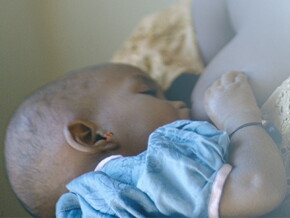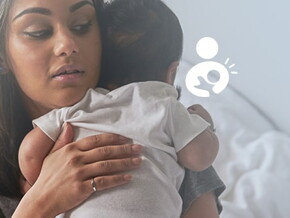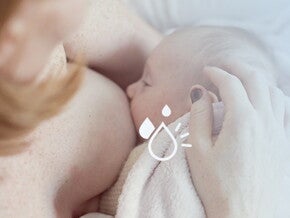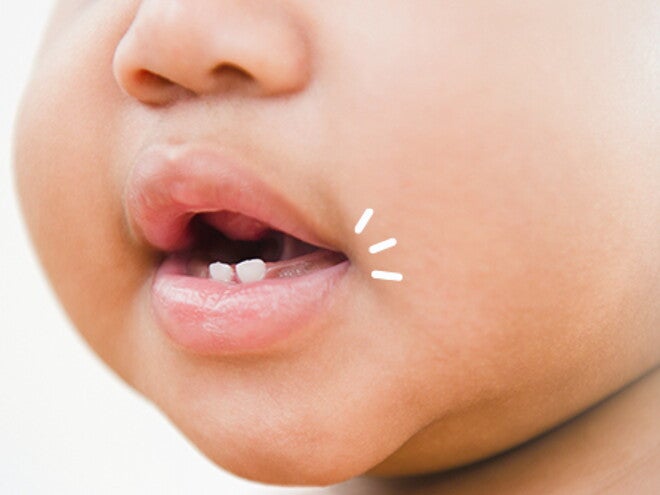
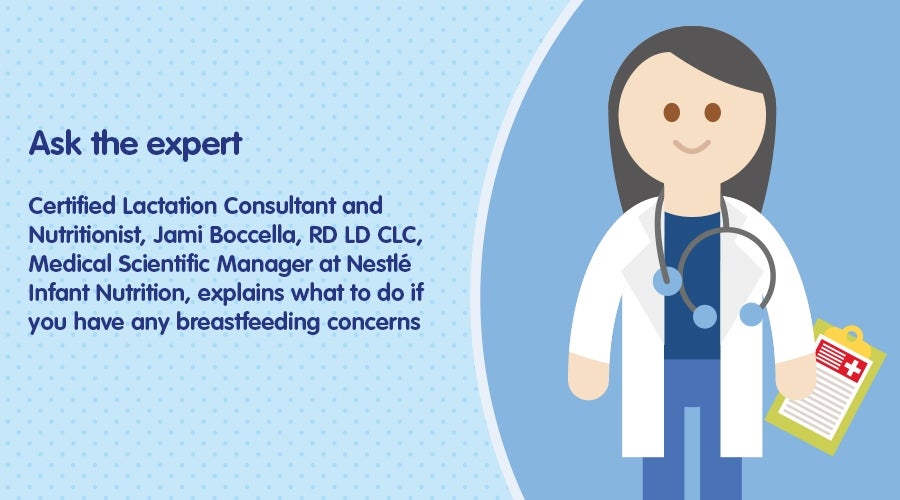 Q: My nine-month-old has cut a couple of teeth already and more are coming through. He has bitten me a few times during breastfeeding recently. What should I do?
Q: My nine-month-old has cut a couple of teeth already and more are coming through. He has bitten me a few times during breastfeeding recently. What should I do?
A: If your baby accidentally bites your nipple, take them off your breast by inserting a clean finger into their mouth to break the seal. Say “no” with a firm voice, but don’t scare them by shouting. Just as you did when you first started breastfeeding, make sure you get a good latch. Wait for your baby to open their mouth wide before bringing them to your breast. You might like to try opening your mouth wide so they can try to copy you. If the biting continues, stop the feeding and put him down for a minute. Take a break, give him a teething toy, or a drink of water from a cup, then try again.
Q: When I sit down to breastfeed, my baby becomes interested in everything around him except my breast. They’re definitely showing me signs they’re hungry but then get distracted. Could they be weaning themself off breastfeeding already? Help!
A: Being distracted during a feeding is normal at this age. It doesn’t mean that your breast milk supply is decreasing or that they’re weaning themself off breastfeeding. Instead, it’s likely that your baby is now more aware of the sights, sounds, and stimulation around them. Help your baby focus on nursing by minimizing distractions. Go to a quiet room, turn the lights low, or use a nursing cover (if your baby’s used to it). Feeding in a café or other public place? Try to move away from the crowds and find a calm, quiet spot. If your baby’s had a very busy day and been distracted during feedings, you may notice they’ll feed more at night.
Q: My baby’s had a heavy cold recently and seems to have completely lost interest in breastfeeding. Should I be worried?
A: Infections and other illnesses can make breastfeeding difficult for your baby. Colds, congestion, ear infections, thrush, and cold sores can all cause problems with feeding, but they usually don’t last long. Speak to your healthcare provider if your baby is ill and always check with your doctor before giving your baby any medications or home remedies.
Q: I’ve been breastfeeding for months without any problems, but suddenly my baby is refusing to open his mouth when I offer my breast. They haven’t got a cold or other illness. I’m so confused. Is it a sign they’re ready to stop breastfeeding and move on?
A: Some babies can suddenly refuse to breastfeed, even after months of feeding with ease. While you may think it’s a sign your baby’s ready to be weaned, chances are they’ve just gone on a temporary ‘nursing strike’. This can happen for a number of reasons. Once you’ve figured out why they’re refusing to feed, you can usually resolve the problem and get back to breastfeeding. Teething is a common reason for a loss of interest in breastfeeding. It can make feeding uncomfortable for your baby. Try giving them a cold teething toy before nursing to soothe their gums. If your routine has changed and you’ve been away from your baby for a while, they might be experiencing separation anxiety. Spend some time snuggling with your baby before breastfeeding to reconnect. Skin-to-skin cuddles (holding your baby so that his bare skin is next to yours) will let him feel your warm body, smell your scent, and feel your heartbeat. They may even be nervous if they bit you last time and you reacted strongly. Spend time cuddling to re-establish your special mommy-baby bond. During a ‘nursing strike’ it’s important to keep track of your baby’s wet diapers to make sure they’re staying adequately hydrated. Check with your healthcare provider if you have concerns, and especially if your baby has fewer wet diapers than normal.
Q: Now that my baby is 8 to 10 months of age, they eat three meals and two snacks a day. Do they still need breast milk?
A: Yes. It is good that your baby is eating complementary foods as breast milk alone will not meet all their nutrition and energy needs. However, even though your baby is eating a variety of foods, they can still benefit from breast milk. In fact, about half of his energy needs should still come from breast milk when they are between nine and eleven months of age. Leading health authorities recommend breastfeeding for 12 months or more. Health Canada recommends breastfeeding alongside complementary foods for up to two years or beyond. You can continue to nurse for as long as you and your baby desire.
Sources
Breastfeeding handbook for physicians (2nd ed.). (2014). Elk Grove, IL: American Academy of Pediatrics.
Lawrence RA & Lawrence RM. (2016). Breastfeeding: A guide for the medical professional. (8th ed.). Philadelphia, PA: Elsevier.
U.S. Department of Health and Human Services Office on Women’s Health. Your guide to breastfeeding (updated 2017). https://www.womenshealth.gov/files/documents/your-guide-to breastfeeding.pdf (Accessed December 21 2017)



